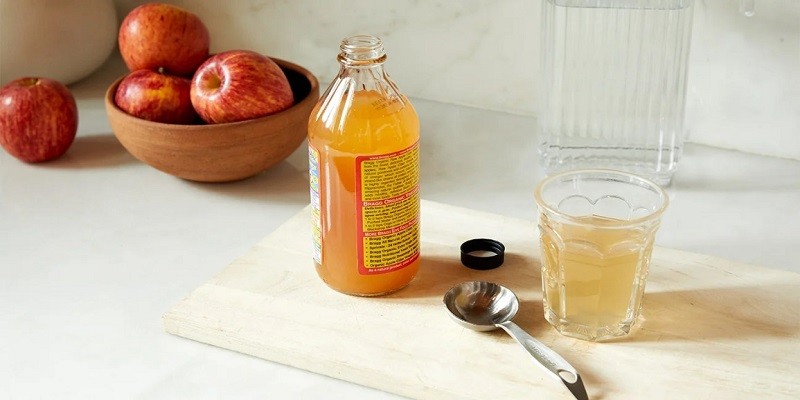Yes, you can eat vinegar when pregnant, but in moderation and with certain precautions. Pasteurized vinegar is generally considered safe during pregnancy, while unpasteurized vinegar should be avoided due to the potential risk of harmful bacteria.
Vinegar is a common household ingredient used in cooking, pickling, and as a natural cleaning agent. During pregnancy, many women wonder about the safety of consuming vinegar, as they aim to maintain a healthy diet for themselves and their developing baby. While vinegar can offer some potential benefits, it’s crucial to understand its composition, nutritional value, and potential risks to make an informed decision.
What is Vinegar?
Vinegar is a sour liquid produced through the fermentation of various sources, such as grapes, apples, grains, or other plant-based materials. The primary active ingredient in vinegar is acetic acid, which gives it its characteristic sour taste and pungent aroma. Vinegar also contains trace amounts of vitamins, minerals, and antioxidants, depending on the source material used.
Nutritional Value of Vinegar
| Nutritional Value | Details |
|---|---|
| Calories | Negligible |
| Carbohydrates | Trace amounts |
| Vitamins | Small amounts of vitamin C, B1, B6 |
| Minerals | Potassium, magnesium, calcium |
| Antioxidants | Polyphenols, flavonoids |
Risks of Eating Vinegar During Pregnancy
| Risks | Details |
|---|---|
| Tooth Enamel Erosion | The acidity in vinegar can erode tooth enamel if consumed undiluted or in large quantities. |
| Heartburn and Acid Reflux | Vinegar may exacerbate heartburn and acid reflux, which are common during pregnancy. |
| Bacterial Contamination | Unpasteurized vinegar may contain harmful bacteria like Salmonella or E. coli, which can pose risks to the developing fetus. |
| Nutrient Absorption | Excessive vinegar consumption may interfere with the absorption of certain nutrients, such as calcium and iron. |
Safe Ways to Eating Vinegar During Pregnancy
When consumed in moderation and with proper precautions, pasteurized vinegar can be a safe addition to a pregnant woman’s diet. It’s recommended to dilute vinegar with water or use it as an ingredient in cooking or salad dressings. Avoid consuming large amounts of undiluted vinegar, and always opt for pasteurized varieties to minimize the risk of bacterial contamination.
Alternatives to Vinegar During Pregnancy
| Alternatives | Precautions |
|---|---|
| Lemon Juice | Dilute with water to prevent tooth enamel erosion. |
| Balsamic Vinegar | Consume in moderation due to its high acidity. |
| Rice Vinegar | Milder in flavor and acidity, suitable for cooking. |
| Apple Cider Vinegar (Pasteurized) | Avoid unpasteurized varieties. |
Experts Tips
- “Vinegar can be a safe addition to a pregnant woman’s diet when consumed in moderation and in pasteurized form. However, it’s essential to consult with your healthcare provider, especially if you have any pre-existing conditions or concerns.”
- “Diluting vinegar with water or using it as an ingredient in cooking can help minimize the potential risks associated with its acidity, such as tooth enamel erosion or heartburn.”
- “If you experience any adverse reactions or discomfort after consuming vinegar during pregnancy, discontinue its use and consult your healthcare provider.”
FAQs
Can I consume apple cider vinegar during pregnancy?
Yes, you can consume pasteurized apple cider vinegar in moderation during pregnancy. However, it’s best to avoid unpasteurized varieties due to the potential risk of harmful bacteria.
Is it safe to use vinegar for cleaning purposes during pregnancy?
Yes, using vinegar for cleaning purposes is generally safe during pregnancy. However, ensure proper ventilation and avoid inhaling the fumes directly.
Can vinegar help with morning sickness or heartburn during pregnancy?
Some women find that consuming a small amount of diluted vinegar can help alleviate morning sickness or heartburn. However, it’s essential to consult with your healthcare provider before trying this remedy.
Can vinegar interfere with the absorption of prenatal vitamins?
Consuming large amounts of vinegar may potentially interfere with the absorption of certain nutrients, including those found in prenatal vitamins. It’s best to consume vinegar in moderation and consult with your healthcare provider if you have concerns.
Are there any specific types of vinegar that should be avoided during pregnancy?
Unpasteurized vinegar, such as raw apple cider vinegar or homemade vinegar, should be avoided during pregnancy due to the potential risk of harmful bacteria.
Conclusion
While vinegar can be a flavorful and versatile ingredient, it’s essential to exercise caution during pregnancy. Pasteurized vinegar can be consumed in moderation as part of a balanced diet, but unpasteurized varieties should be avoided due to the potential risk of bacterial contamination. Always consult with your healthcare provider if you have any concerns or questions regarding the safety of consuming vinegar during your pregnancy.

